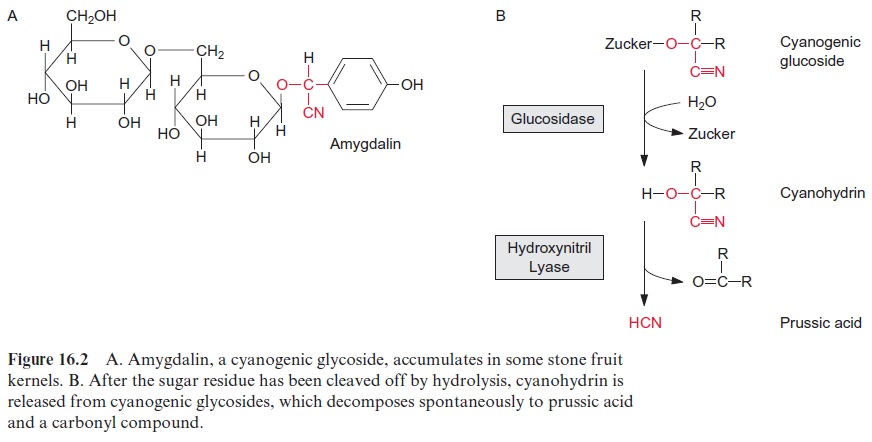Chapter: Plant Biochemistry: Secondary metabolites fulfill specific ecological functions in plants
Some plants emit prussic acid when wounded by animals
Some plants emit prussic acid when wounded by animals
Since prussic acid (HCN) inhibits cytochrome oxidase which is the final step of the respiratory chain, it is a very potent poison . Ten percent of all plants are estimated to use this poison as a defense strategy against being eaten by animals. The consumption of peach kernels, for instance, or bitter almonds can have fatal consequences for humans. Since plants also possess a mitochondrial respiratory chain, in order not to poison themselves, prussic acid is bound in a non-toxic form as cyanogenic glycoside, e.g., amy-gdalin (Fig. 16.2), which is present in the kernels and roots of peaches. The cyanogenic glycosides are stored as stable compounds in the vacuole. The glycosidase, which catalyzes the hydrolysis of the glycoside, is present in another compartment (cytosol). If the cell is wounded by feeding animals, the compartmentation is disrupted and the glycosidase comes into contact with the cyanogenic glycoside. After the hydrolysis of the glucose residue, the remaining cyanhydrin is very unstable and decomposes spontaneously to prussic acid and an aldehyde. A hydroxynitrile lyase enzyme accelerates this reaction. The aldehydes synthesized from cyanogenic glycosides are often very toxic. For a feeding animal, the detoxification of these aldehydes can be even more difficult than that of prussic acid. Due to the formation of the two different toxic compounds, cyanogenic glycosides are a very effective defense system.

Related Topics